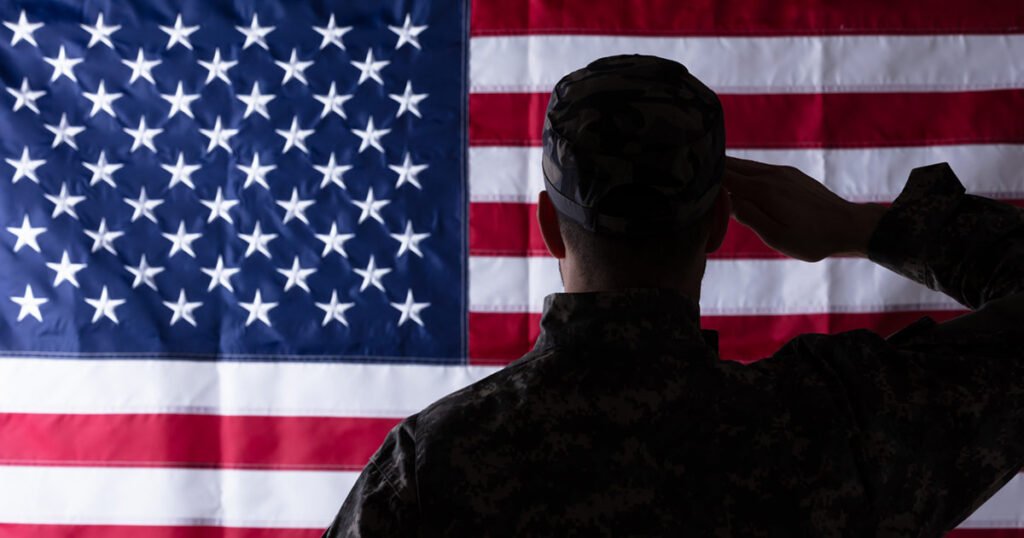Joining the military isn’t like applying for a job for a few reasons, and the armed forces don’t allow just anyone to enlist. Deaf people are no exception.

For one thing, the civilian workforce has the protections of Title VII of the Civil Rights Act of 1964, which provides equal treatment. But Title VII doesn’t apply to the military.
Every candidate must meet specific qualifications to qualify to join any military branch, such as:
- Age
- Medical history
- Physical fitness
- Height/Weight
- Citizenship
- Education
- Test score
- Drug history
Citizens who are deaf or those with significant hearing loss cannot join the military because it falls under medical history.
In other words, people can meet all other joining requirements, but a hearing loss, unfortunately, can keep them from joining the armed forces.
Hearing Requirements for Military Service
The military has a clear and easy-to-understand policy regarding hearing requirements.
According to the Department of Defense (DOD), the existing hearing standard to enlist in the US armed forces is:
- A pure tone threshold average of 500, 1000, and 2000 Hz and not more than 30 dB in each ear, with no individual level greater than 35dB at these frequencies.
The military’s hearing test measures hearing levels at 500, 1000, 2000, 3000, and 4000 cycles per second at varying decibel levels.
After the exam, the branch they’re attempting to enlist will average the decibel levels and provide them with the score.
- Normal. 0-20 dB.
- Mild hearing loss. 20-40 dB.
- Moderate hearing loss. 40-60 dB.
- Severe hearing loss. 60-80 dB.
- Profound hearing loss. > than 80 dB.
The military service accepts recruits that fall in or below moderate hearing loss (mild and normal).
Why good hearing is vital in the military
Hearing is considered the most important sense for survival.
Actions and choices in the military are based on commands that are, in large part, verbal. Noises and communication are the only warnings to retreat during an active battle.
A soldier with hearing loss would be unable to hear critical acoustic cues or verbal signals from fellow or enemy soldiers, which puts them and their unit at risk.
When hearing loss happens while already enlisted
Some people join the military and then begin losing their hearing. This can happen for whatever reason.
They’re allowed to use hearing aids if they begin to experience hearing issues once they’re part of an armed forces branch.
In fact, hearing loss is not an uncommon occurrence in soldiers and is called noise-induced hearing loss.
But, if they require hearing aids before trying to join, they will not qualify, though.
The History of Deaf People and the Military
Deaf soldiers and civilians participated in the Civil War. Those hard of hearing worked as noncombatant supporters, press advocates, and even as sentries.
The North and South militaries restricted deaf enlistees. But many hard-of-hearing men looked to serve, and a great number succeeded.
The Civil War was the last time deaf people were documented as having fought in a war or conflict.
During both world wars and every conflict since, citizens with some hearing impairment found other ways to contribute to the war efforts.
The deaf community raised funds, gave blood, packaged goods, and donated scrap metal and food.
What the Future Holds for Deaf People in the Military
Keith Nolan joined the ROTC as a young man and wasn’t allowed in the Navy due to deafness. Nolan began working on legislation in 2014 to create a pilot program that would allow deaf people to join the Air Force. The program was to include 15 to 20 deaf recruits that had varying degrees of hearing loss.
Rep. Mark Takano introduced the Keith Nolan Air Force Deaf Demonstration Act in 2018 for consideration in the military budget. But the program and bill never made it out of the Military Personnel subcommittee.
Nolan believes that deaf candidates have skills to offer the armed forces that include cybersecurity and other expertise. And while the pilot program was for the Air Force, the point of the demonstration was to include every branch eventually.
But, because of the current military service policy, allowing deaf people to enlist doesn’t work.
Regardless of the post or position in the military, all service members have to be deployable at any time. As of now, no non-deployable exists within the military.
Another huge issue with viability is the lack of accommodations like equipment.
While accommodations could be made, reports have suggested it would negatively impact military services.
An example is when a military member can’t be deployed; a replacement must be found, which delays the deployment process and creates more work.
Conclusion
It’s absolutely not the deaf people’s fault if they don’t qualify for the military due to their medical history, such as hearing loss.
According to reports from the US Army, 71% of young people do not meet the qualifications to join the armed forces.
The hope of Nolan and other advocates is that one day deaf citizens who want to serve their country can enlist in the military branch they choose.
Advocates in and out of government continue to fight for policy change and the rights of deaf people and the hard of hearing.
Share this post with your friends using these one-click sharing options:
👉 Click here to share on Facebook.
👉 Click here to share on Twitter.
👉 Click here to share on LinkedIn.

Get the latest interviews, tips and guides in your inbox.